At ROBS lessons of Black history don’t just happen in February. Indeed, centering Black voices across subjects—from literature and social studies to science and art—is a concerted initiative of the ROBS strategic plan. But during Black History Month, these lessons take on a celebratory brio. Commemorative books, art, and music flood the hallways, as students are immersed in a multisensory burst of various Black American cultures. Check out what’s been going on around ROBS this month.
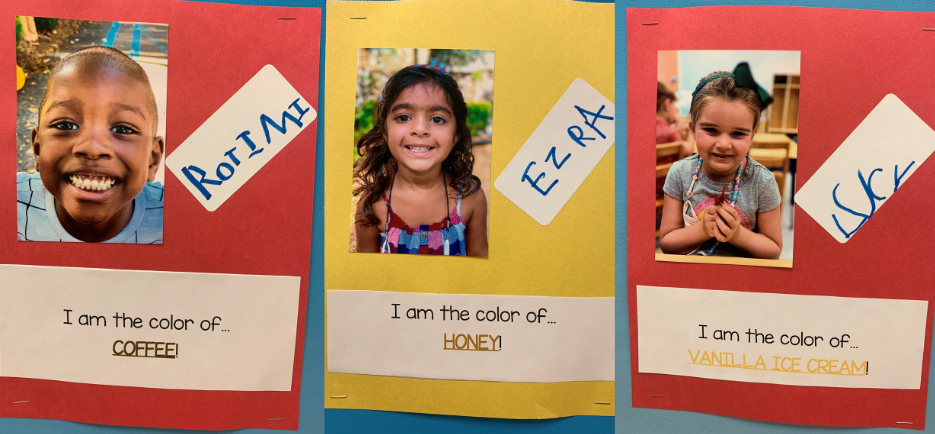
Our Preschool students began February with a literacy lesson that helped them take a close look at the beautiful skin tones that God gave each of us. The Colors of Us, by Karen Katz, helped our students see their skin in a new way. After reading the text, each child in the class was encouraged to select a food that most closely resembled the color of his or her skin. One picked coffee and another golden honey, while a third chose delicious vanilla ice cream. Just imagine the conversation your family might have at dinner tonight if everyone thought about skin color in this way!
In Lower School, our second grade teachers sent their students on a “scavenger hunt” through their Black History Month Timeline of Greatness. Students learned about the contributions of Harriett Tubman, Muhammad Ali, Maya Angelou, Condoleezza Rice, Jackie Robinson, John Lewis, Gabby Douglas, and Oprah Winfrey, just to name a few. Reading about the lives of these influential people gave our second graders a window into the contributions Black Americans have made to literature, politics, sports, entertainment, and, perhaps most importantly, social justice, throughout history.
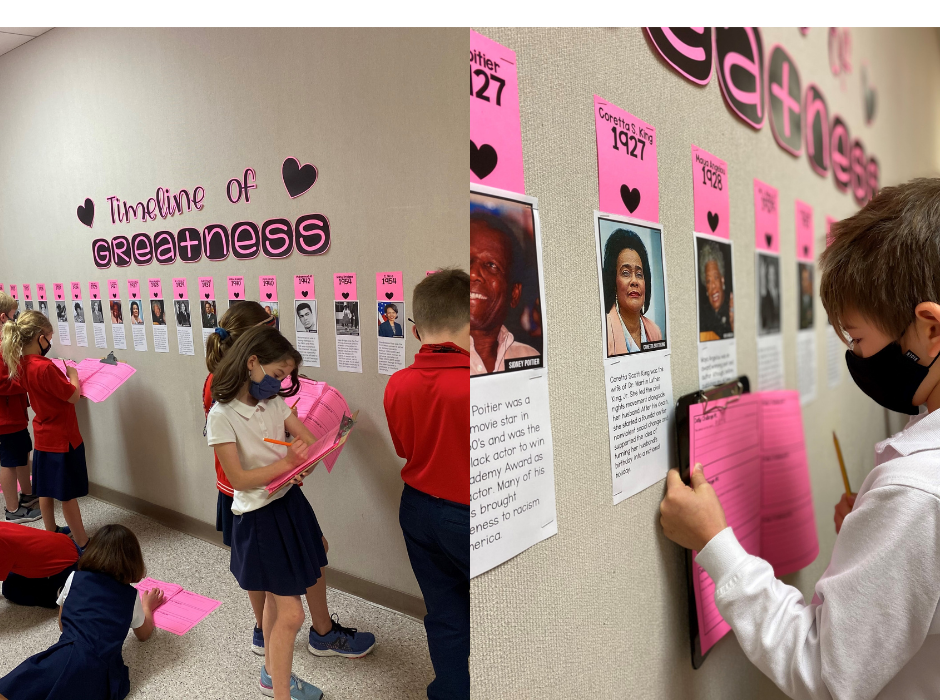
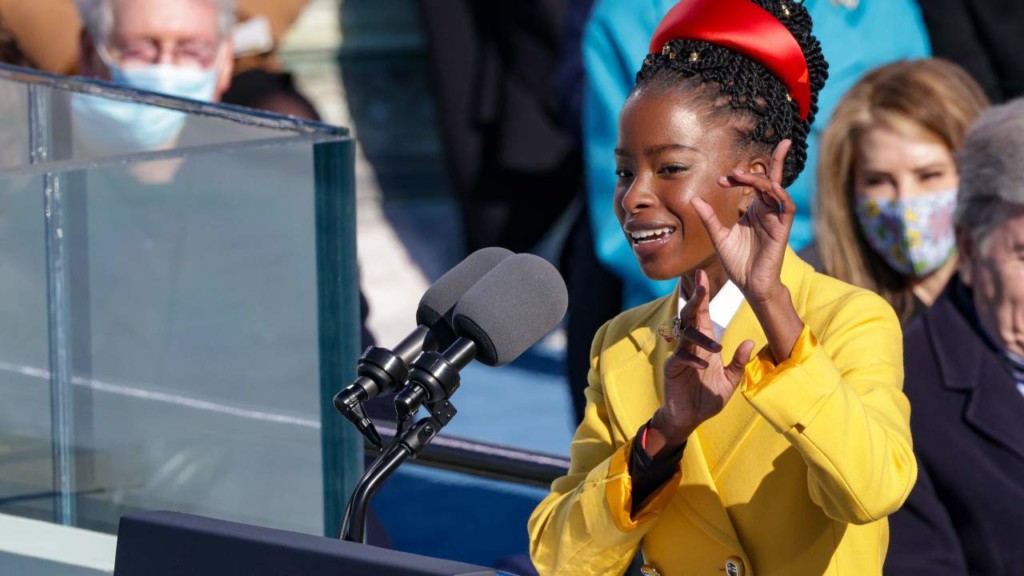
Meanwhile, fourth graders listened to and discussed “The Hill We Climb,” the poem written and recited by 22-year old Amanda Gorman, the first National Youth Poet Laureate, at the inauguration of President Joe Biden.
Our Librarians have done a great job, across divisions, promoting the vast literary contributions of Black Americans. They’ve curated a wide selection of texts related to Black History Month to support teachers’ lessons in the classroom. Teachers and students alike can drop by the library to pick up a Coretta Scott King award-winner or another “windows and mirrors” book.

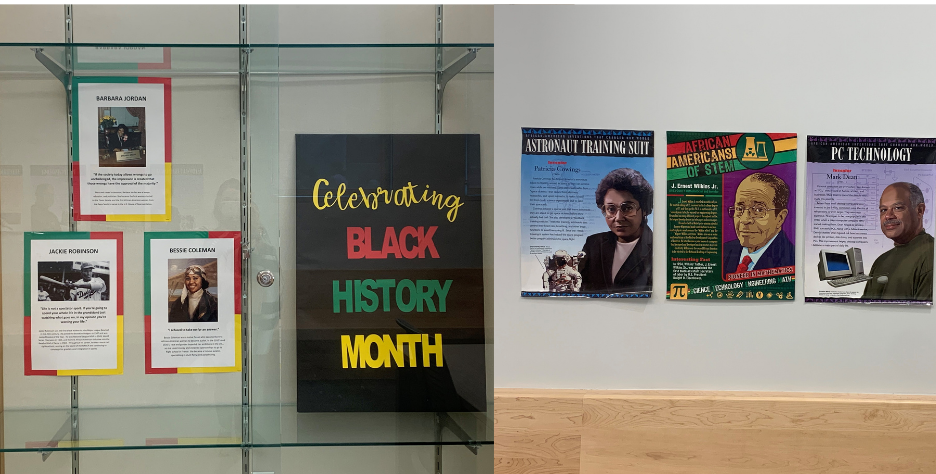
Beyond the Library, students will find posters throughout the Lower and Middle School buildings that feature both famous and lesser-known African Americans and their contributions to science, art, literature, business, politics, and much more.
Teachers are incorporating lively and educational lessons about Black history into classroom activities using decks of Black History flashcards as a resource. Seventh and eighth graders in the Innovation & Design class used these cards as a resource to help them select a topic for their Black History Month project. Students were tasked with researching how a forward-thinking mindset contributed to progress in the Civil Rights Movement. Students studied moments in history that were critical to the Civil Rights Movement: for example, the nationally televised friendship between white Mr. Rogers and Black Officer Clemmons, as well as the 1963 desegregation of Herren’s, the first white-owned restaurant in Atlanta, Georgia, to voluntarily serve Black customers. Students also looked to the artistic and literary contributions of influential Black Americans, one by studying artist Charles White’s 1961 drawing Awaken from the Unknowing, which depicts an African American female on a determined quest for knowledge, and another through a close reading of an excerpt of Dr. Martin Luther King, Jr.’s “I Have a Dream” speech. Students were asked to think critically about the progress we made as a nation through the Civil Rights Movement, while considering the racial inequities that persist.
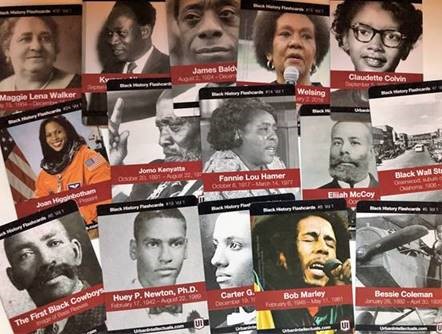
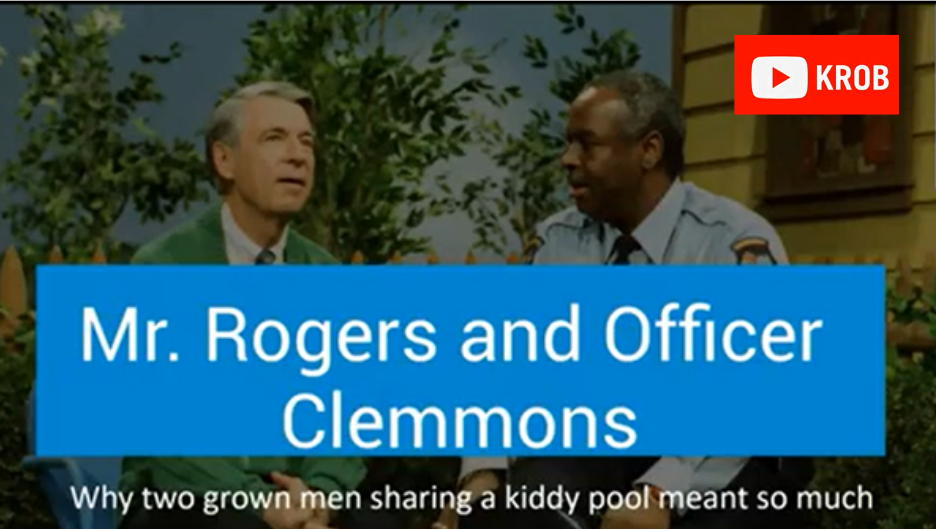
Several of these projects, as well as other student-produced segments related to Black History Month, have been featured in the daily KROB broadcasts throughout February. Through KROB, our Middle School students have learned about the evolution of Black History Month, the importance of Ruby Bridges, the contributions of African Americans to the United States military, the story of Chef Kwame Onwuachi, the poetry of Rita Dove, the first African American Poet Laureate, and much more. Be sure to ask your child what was featured in the Black History Month segment in this morning’s KROB. Interested in watching the special February KROB broadcasts? This year’s KROB broadcasts can be accessed here.
In Chapel, Lower and Middle School students are listening to and learning the history of “Lift Ev’ry Voice and Sing,” one of the most cherished songs of the Civil Rights Movement. Even those who know the song may be surprised to learn that it was first composed as a poem. James Johnson wrote the words in the late 1890’s, and his brother Rosamond Johnson later set the words to music. In 1900, when James Johnson was principal of a segregated school in Jacksonville, Florida, he arranged for five hundred of his students to perform the song in honor of President Abraham Lincoln’s birthday. Soon after, the NAACP adopted “Lift Ev’ry Voice and Sing” as its official song.
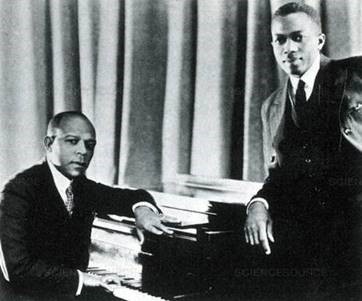

Beyond the classroom, students are learning not only about black history, but black culture as well. Jazz, gospel, and R&B music greets students each morning in the carpool line, as everyone on campus absorbs the sounds of Black History Month. The songs we’ve been hearing on campus can be accessed at the links below.
Even in the cafeteria, Black History Month is front and center. Throughout February, Chef Rylan will create menus inspired by famous Black chefs Kwame Onwuachi and Edna Lewis and prepare desserts with ties to South Africa, Senegal, Equatorial Guinea, Ghana, and Sudan.
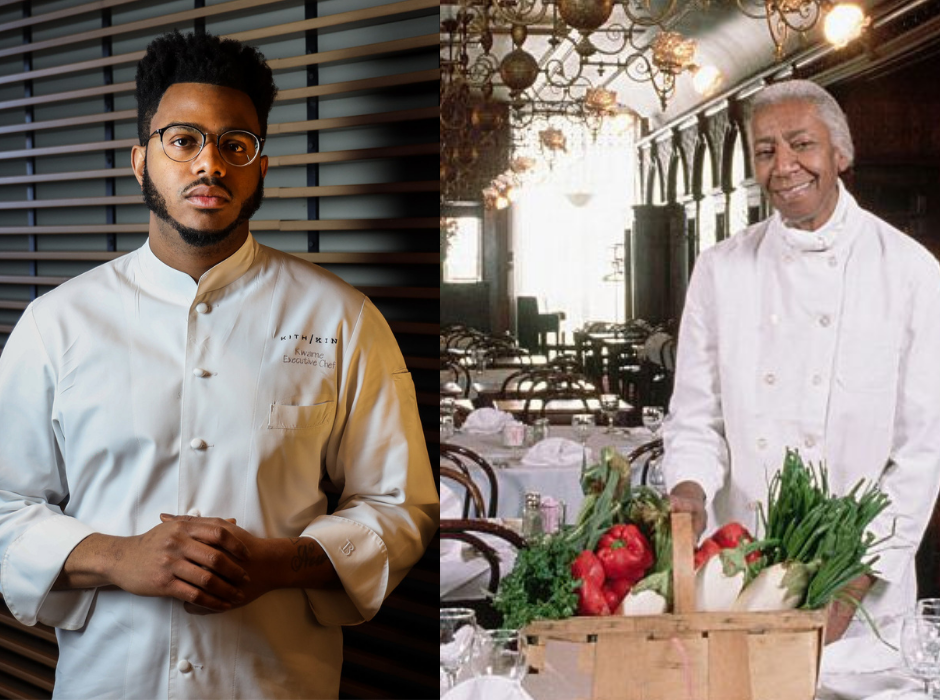
Thank you to our teachers and volunteers who have helped us celebrate the “too-often neglected accomplishments of Black Americans in every area of endeavor throughout our history,” in keeping with President Gerald Ford’s initial declaration of Black History Month.
Special thanks to Mia Foster, Grace Freeman, Shandra Hagins, Lori Jazaeri, Adrian Leal, Keila Lopez, Shelly Kurtz, Kimberly Murphy, Chelsea Pacey, Lauren Soliz, Erika Toussaint, Crystal Frommert, Nicole Hadnott, Rylan Jeffries, Brian Mahabee, Ashley Mejia, and Dana Thomas-Fisher for contributing to this year’s activities.
